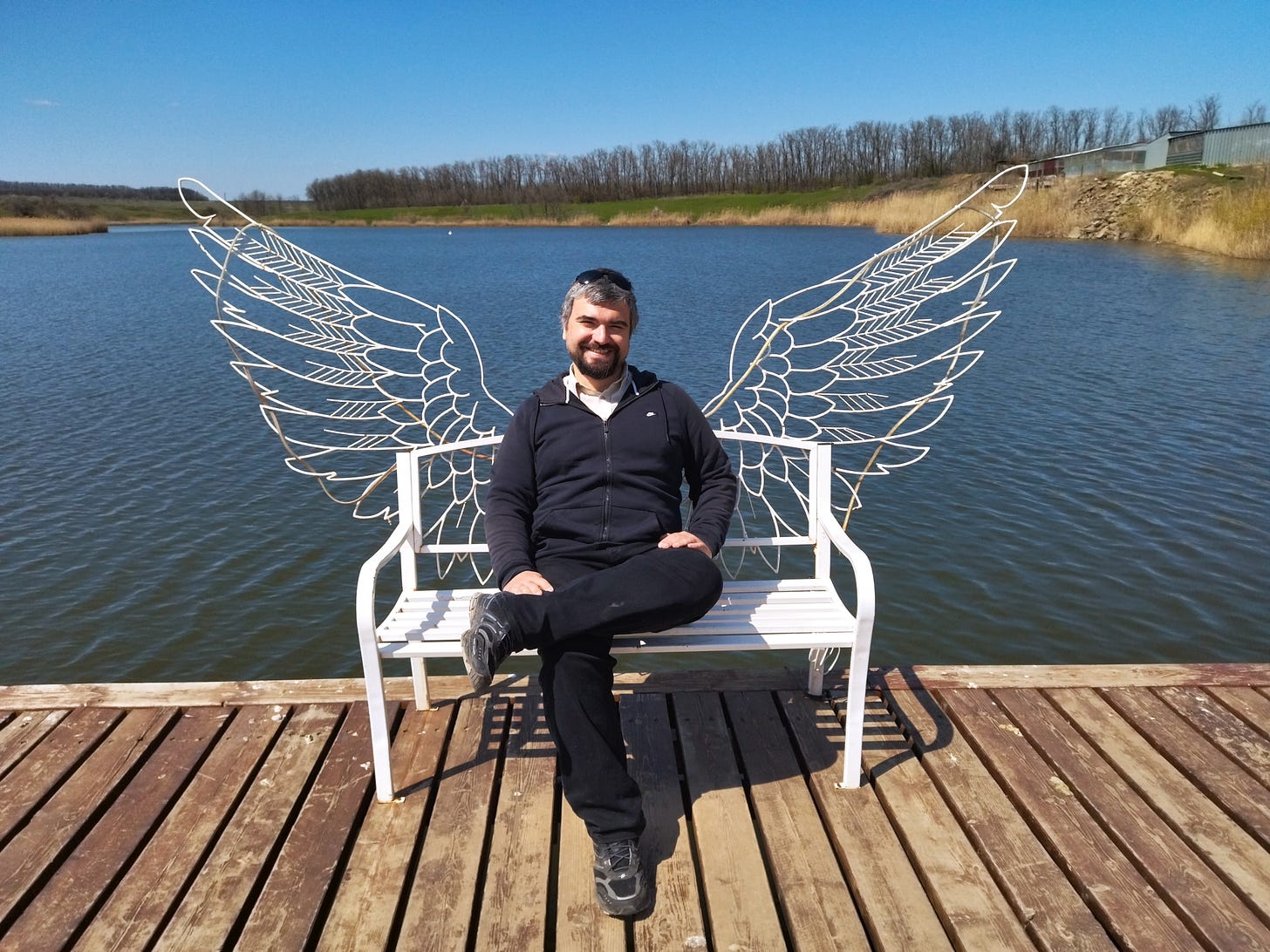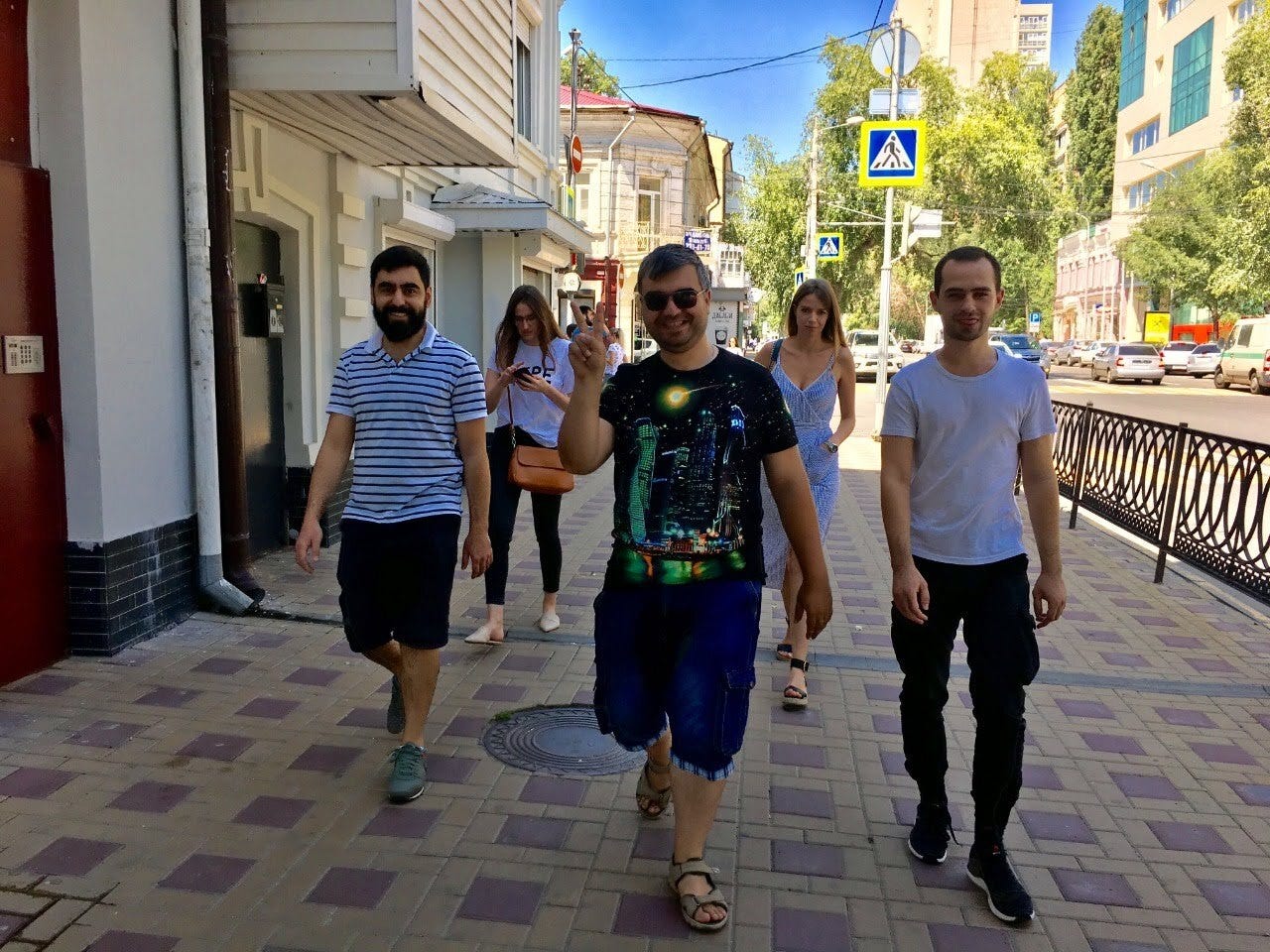Profile: Alexey Petushkov, Senior Software Engineer
We talk with Alexey about the possibilities of Web3, engineering from an early age and remote work bringing similar people together
Tell me about yourself. Where are you from? What do you enjoy doing?
My name is Alexey. I’m from Rustov-on-Don, which is a city in the south of Russia. I am the father of two daughters, who are 4 and 10 years old.
I’m a bit of a computer geek. I started programming in the 7th grade, even doing some sysadmin for the school LAN (local area network). I now have 20 years in programming, lots of experience with startups, and experience working in companies that provide services to mostly US-based startups to help them grow.
I enjoy working in cross-cultural teams. I’ve worked with people from many different countries and all continents. I love remote environments, especially remote first, because you can really cast a global net for talent that in turn gives you access to new experience and new approaches. Recruiting globally means the average talent level of your developers is higher.
Beyond work, I like hiking and walking, both in the city and in nature. I love swimming in the sea. This isn’t typical for Russians, but I hate the cold and I hate winter. I haven’t been able to travel as much as I’ve wanted to in the past, but I have my visa now and hope to visit more countries soon.
What made you choose Clipboard?
A big part of the decision was how fast the interview process ended up being. All the interviews and communications together took a week or less. That’s really fast. Sometimes you are in an interview process and it takes a very long time, and you can’t help but think it’s telling you something about how the company works in general. The speed of the decision was comforting.
I also really like remote cultures, like I mentioned. Clipboard is a completely remote oriented company, as opposed to hybrid. I once worked for a start-up that was acquired by a company that was primarily offline, and I saw the change happen in front of me. We got slower.
My experience with offline companies is that they are just slower in general. When you do distributed teams right, it’s like neurons communicating with each other and disseminating information in an entirely different, faster way. Clipboard Health has achieved a lot in terms of building a culture that promotes effective remote work, because they were committed and intentional about how they approached the remote work space.
What about now that you’ve been here a while?
Looking at a company before you join and after is often different. After a month at work you know it better. Now I’ve gotten to see what the interview speed was hinting at, and most things really are faster here. We focus on speed and hate roadblocks.I also got to see what we do much closer. In July of 2020 I got COVID-19 and on my birthday I was in the hospital with damage to 70% of my lungs. It put healthcare into a different perspective for me. Seeing how much we do for the nurses close-up makes me feel good. Connecting healthcare facilities and healthcare professionals to increase the standard of care for the sick is one of the best causes you could work for.I do like my team, as well. I have a feeling that most developers have a lot in common. If two developers from different companies communicate, I think they will find they have more in common on average than, say, two people from the same town. There’s starting to be a new global culture built more around interests and commonalities of that kind as opposed to nationality and politics.
Tell me about your skillset - what do you do now? What new skills are you trying to pick up?
I’m mostly a generalist. I have experience with different programming languages and I’ve done front end, back end and cross platform dev. I’m usually “not just coding”, though. I’m solving business issues in a broader sense.
I’m trying to learn more and get more involved with the idea of the centralized internet, in the Web3 blockchain sense. There’s a lot of advantages to the current approach, but it encourages oligarchy and is very much about money as opposed to informational freedom.
Right now with blockchain decentralization if you don’t host the node you have to have information about all the transactions in the chain, including information you don’t care about. I think there’s a middle ground we could hit where we have a Web3 that isn’t all about money and gas fees. Something that keeps the advantages of Web2, like cheap and affordable servers and services, while getting the best of Web3’s promise.
The phone interview above was edited before publication. Clipboard Health will be publishing a regular series of interviews to highlight our incredible team, share what we’re accomplishing and to give a window into our unique work culture.


